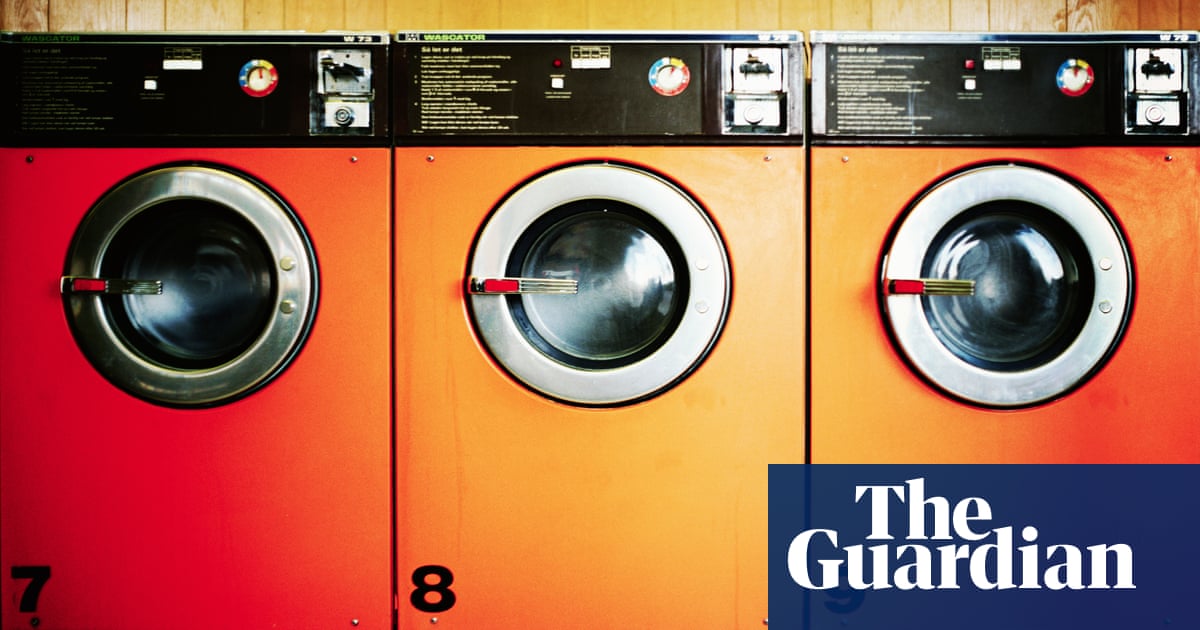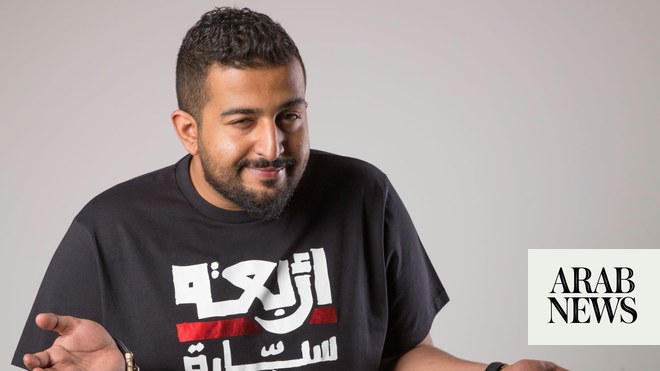
In 2003, I booked a tiny venue for Melbourne fringe festival, to perform a show I had tortuously titled Navel: Cerebral Melodies With Umbilical Chords. It was a sort of dark, ridiculous cabaret, and a desperate attempt to shake off the pain of all the rejections I had been getting (agents/record companies/the dude who approves small loans at the bank), by showcasing my various “talents”, which arguably included unusually clear diction, considerable manual dexterity, and a love of cheap double entendre. (Which is to say there were some outstanding jokes about fingering.)
Navel was a gamechanger for me, because I knew I had an unusual toolkit, and although I knew I had a tendency to play the clown, I didn’t by any stretch think of myself as a comedian. But that night, everything changed: the 30-odd weirdos perched on bar stools and chaises longues laughed. A lot.
Seven short years later, I was playing arenas. My 2010 tour involved a 55-piece symphony orchestra and dozens of crew, grand pianos and scissor lifts, massive light shows, tour buses, bouncers, booze, fans with my lyrics or my face tattooed on their legs; in my silliest dreams, I never imagined a life like it. The shows were joyous and complex and fun and challenging. The rewards were huge. I was flying.
So I stopped. And barring a couple of spasms of activism, I haven’t written a comedy song in more than 10 years.
The reasons I stopped are not particularly dramatic. There was no big crisis or breakdown; no Damascene moment of realisation that I’d been suckling on the teat of the devil. The reason I stopped was temperance … or so I like to claim. If I’m honest, it was also ambition. But we’ll get to that.
By temperance, I mean that I saw dangers ahead. I am married to my childhood sweetheart Sarah, and we had kids relatively young. I like my kids, and I like Sarah. I like peace and quiet. I love running and eating reasonably. I like playing piano by myself and I like being able to walk to the shops without being stopped. I like my liver.
But do you know what else I like? Like, really fucking like? I really like wine. I really like tour buses with cheese platters at midnight, and nice hotels and someone to sort my washing. I like 10,000 people leaping to their feet to applaud me. I like heads turning when I walk into a bar, and being stopped in Boots for photos. I like hanging with smart, funny people and getting papped on the way out of the Groucho. I like being respected by people I admire. I like ending up in late-night bars in romantic cities and having that shock of realisation that a sexy person is hitting on me. I, like everyone, love feeling wanted.
And I knew that none of that shit is good for a person.
All of it basically (actually, literally) rewires your brain. “Fame” takes that internal camera we call the “self” and puts it on a massive selfie stick, so when you are in public a percentage of your brain is always occupied by observing yourself in the third person. And eventually you don’t know how to reel that camera back in, even when you’re at home with your partner and kids. You start to believe that you are an entity. You learn to like yourself as much as you are liked, which means, when the trolls come trolling, you tend to hate yourself as much as you are hated. There is a reason why famous people are often screwed up: it’s not that wankers become famous, it’s that fame makes you a wanker.
In short: I wanted to head hedonism off at the pass. I wanted to not become an alcoholic, I wanted to not cheat on my partner, and I wanted to not become an unbearable tool with a huge-tiny ego.
But I also stopped doing comedy because I’m very ambitious. My ambition is not for wealth (although that’s another trap I can clang warning bells about), and it’s not for fame (although it is an addiction that, once tasted, most never quite shake), and it’s probably not for power (although some is useful to an artist). My ambition is immodest and obtuse: I want to be unpigeonholeable.
I grew up in Perth, Australia. It’s one of the most beautiful cities in the world, but being small and isolated, its arts scene doesn’t sustain a hell of a lot of artists. It also isn’t a place from which the path to success is very clear. It was so unclear to me that I never really thought about it. Everything my friends and I did was for its own sake. We weren’t making art in the hope of being spotted by a talent scout or a movie producer, as there were none, and this afforded us incredible freedom. Not just the artistic freedom to make whatever the hell we wanted to make, but freedom from thinking of our plays and gigs as a step on a ladder, or even a viable way to make a living. Freedom from self-pigeonholing.
So I wrote scores for kids’ theatre companies. I did improv. I had a 70s cover band, a Burt Bacharach tribute band, a wedding band. My brother and I recorded an album in our houseshare. I produced soundtracks for friends’ documentaries and short films. I wrote songs for co-op musicals; rigged lights and built sets; played piano for an Aussie Piaf act in red-dirt mining towns; played the eponymous whiner in a three-hander Hamlet. All through my 20s, I was a Jack of all trades, master of making no money.
Then everything went bang and suddenly I was a fucking “comedian”.
I love and miss the UK, and know that I am incomprehensibly lucky to have been a embraced by audiences in all its nations, including Cornwall. But I was never comfortable with the label comedian. “Standup” even less so. Mostly because I am keenly aware that I’m not in the same league as my friends who are dedicated to the form, but it also rubbed me the wrong way because it felt like a trap: I feared that if I were a comedian, other doors would close on me.
Then this six-year-old superhero came along and, hands on hips, she kicked down the doors for me. A song about an inflatable sex doll got me into comedy, and Matilda the Musical helped me escape it. What I learned in the two years I spent helping make that musical made me believe I could do more. And its success allowed me the space to take the risks required to do so.
Of course, with risk comes pain. I played Friar Tuck in history’s most poorly reviewed Robin Hood. Our musical, Groundhog Day, despite awards and five-star reviews, took a bit of a battering on Broadway (I promise it will be back!). I spent four years in Hollywood working on an animated film that was shut down when the studio was sold. I have done humiliating auditions, had thousands of hours’ work go to waste, taken plenty of swipes.
But I have sung Judas at Wembley Arena. I’ve played Rosencrantz in Rosencrantz and Guildenstern Are Dead and I’ve eaten a chocolate bar out of Marcy Runkle in Californication. I’ve written TV scripts, and voiced animated koalas, and written songs for kids’ films, and published a children’s book and a graphic novel. I have performed on the Sydney Opera House steps with a band made up of my siblings and cousins. I released an album and livestreamed it in the middle of a pandemic. What’s more, I’ve been able to spend a lot more time with my kids, I have a wonderful marriage, and I’m not (yet) a (proper) alcoholic. And it no longer matters to me how I’m defined because in my head I’ve done it: I am a pigeon without a hole. I’m a box-less bird. A title-less tit. An emancipated emu.
But, holy shit, have I missed touring. Once you’ve felt that buzz of having a live audience on a string, the pure, unfettered joy of a group of musicians gelling perfectly, that relief of having got away with it again – you never forget it. So I decided to come back, with a show called Back.
There were a lot of discussions about what this tour was going to be. I knew I wanted it to reflect the journey I’ve been on since I skulked away from comedy. I wanted it to reflect the development of my songwriting since I’ve become a grownup composer. My intention was to let the songs speak for themselves and do less talking.
As if! I’d forgotten the reason I accidentally became a comedian in the first place: when I’m on stage, I feel compelled to go for the laugh. So within a week of getting Back on the road, it had started to resemble what I now realise is simply my “thing”: a ridiculous, dark cabaret show, now almost 20 years in the making.
And over the years, as things have gotten more complex in my life and more confronting in the world, there has been clarification. Whatever the title, my job is to engage. Using whatever tools I have in my kit, I just want to hold your attention. With my tongue. And my fingers. And my love of cheap double entendre. I just want to hold you.












